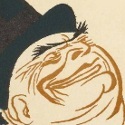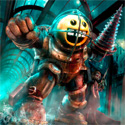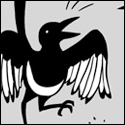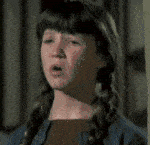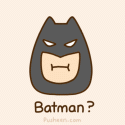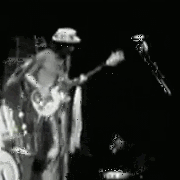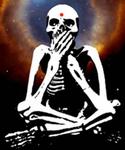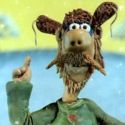|
madlilnerd posted:This morning I finished reading Dracula, because I've thought for a while that I should actually bother to read some classic books. Turns out I didn't know the plot of Dracula at all, and was completely and pleasantly surprised. It can be a bit boring in places but by the end is a real page turner. I didn't know that Dracula was so... magical, you know? Slipping through tiny cracks, turning into weather, appearing as a twinkling mist, all that jazz was new to me. I recently finished this too, on my second attempt. The first time, I got bogged down in the fairly purple, potboiler initial chapters. But it was easier once I got past that. And - as above - the plot was a surprise. Van Helsing, Harker etc aren't passive but hunt down Dracula with logic and detective work. The style is a little old, lumbering and verbose and there are far too many scenes in which the character compliment each others bravery, intelligence or virtue. But in summary: better than you'd expect. On another random classic, I also finished Zorba the Greek. The style here is also slightly aged and clunky - with once again many declarations of intense admiration - and some of Zorba's behaviour looks fairly sketchy (arson, despising and making fun of old women) but it's very readable and snapshot of a time and place (Greece in the 30s) that doesn't feature in many books. Recommended.
|
|
|
|

|
| # ? May 13, 2024 21:48 |
|
I sped through The Communist Manifesto and the first volume of Das Kapital this week. CM is actually great social commentary. One of my favorite parts was the description of wife-sharing/affairs/swapping as a fairly common thing in the bourgeoisie and their bewilderment that it isn't as reviled as it should be. There were also some interesting ideas about philosophy and the evolution of philosophy as well - how it's now just literature and no longer a way of life as it used to be. Anyway, good stuff.
|
|
|
|
Lord Sandwich posted:I sped through The Communist Manifesto and the first volume of Das Kapital this week. CM is actually great social commentary. One of my favorite parts was the description of wife-sharing/affairs/swapping as a fairly common thing in the bourgeoisie and their bewilderment that it isn't as reviled as it should be. There were also some interesting ideas about philosophy and the evolution of philosophy as well - how it's now just literature and no longer a way of life as it used to be. How in the hell did you get through Capital so fast? It took me three or four days to get through the first chapter. I'm projecting like 3 more weeks for me to finish it.
|
|
|
|
Finished up Grim Reaper : End of Days by Steve Alten this morning. It was a weird mishmash of the stand, dante's inferno, truther 9/11 "information" and other misc weird poo poo. It really wasn't that great. I wanted to quit reading it when it got a little bit heavy handed with the 9/11 truther bits, moreso when it got to the iraq war is wrong, even MORESO when it went straight into the "evil government torturing people" parts but I kept at it cause every time I turned the page it got a little more batshit. I was wondering how far down the rabbit hole goes, and in the case of this book, it's REALLY REALLY REALLY far. I can't really recommend it, the plot line is schizoid, the heavy handedness of the author is just annoying, and the ending is just... god drat this book sucked. All I learned is when you think you want to discover how hosed up the author is, chances are he is WAY more hosed up than you can really imagine or handle. It does have a nifty cover though. Stupid_Sexy_Flander fucked around with this message at 17:41 on Mar 15, 2012 |
|
|
outlier posted:
I tried to read Zorba and had a hard time with it -- mostly because as a modern reader, any time I run into a book like that where one guy is rhapsodizing for page after page about how beautiful and handsome and emotional and awesome this other dude is, after a certain point I want to just scream "OK, JUST KISS HIM ALREADY." I realize it's a different era and so forth but to a modern reader or at least to this modern reader that book basically screamed "repressed homosexuality" from every page.
|
|
|
|
|
TFNC posted:How in the hell did you get through Capital so fast? It took me three or four days to get through the first chapter. I'm projecting like 3 more weeks for me to finish it. You may already be aware, but in case you aren't I would suggest David Harvey's online lecture series as an excellent (and free) companion to your review of Capital.
|
|
|
|
TFNC posted:How in the hell did you get through Capital so fast? It took me three or four days to get through the first chapter. I'm projecting like 3 more weeks for me to finish it. It was just the first volume, and I wasn't reading to savor it (I'm not sure if that's even possible for most people). I don't think that I'm going to read the other two volumes.
|
|
|
|
I just finished up That Weird City, and it is pretty good. If you like Urban Fantasy and want something fun, I'd say give it a try. It is only Kindle though, so if you don't like ebooks or don't have the ability to open those files you are out of luck.
|
|
|
|
I've just finished Something Rotten, by Jasper Fforde. For the uninitiated, Something Rotten is the fourth in a series of comic fantasy novels starring Thursday Next, who lives in a parallel universe to ours in which George Formby is president of England (now a republic). Thursday, and others, can jump from their real world into and out of novels. It's difficult to describe the book, or series, and do them justice (at least, for someone with my limited language skills), so all I'll say is that they are extremely well written, the characters are a delight in each of the novels, they will make you laugh often, and there's tons of literary references that you'll feel all
|
|
|
|
The Thursday Next series is amazing. I think Fforde is the only author to come anywhere near the kind of anarchic, yet perfectly calculated, genius of the late Douglas Adams. I loved the Jack Spratt series too.
|
|
|
|
Folderol posted:You may already be aware, but in case you aren't I would suggest David Harvey's online lecture series as an excellent (and free) companion to your review of Capital. Oh yes, thanks, I've been listening to it while I work. I bought archives almost solely to read the old LF let's read thread, too. In it to win it. Lord Sandwich posted:It was just the first volume, and I wasn't reading to savor it (I'm not sure if that's even possible for most people). I don't think that I'm going to read the other two volumes. I didn't mean to imply you were somehow doing it wrong, it's just that "I read Capital this week" is like a sentence that I never thought I'd come across, especially compared to my slow-going.
|
|
|
|
Rogue1-and-a-half posted:The Thursday Next series is amazing. I think Fforde is the only author to come anywhere near the kind of anarchic, yet perfectly calculated, genius of the late Douglas Adams. I loved the Jack Spratt series too. Yeah the Jack Spratt series is just as funny and just as clever. Great author.
|
|
|
|
Hieronymous Alloy posted:I tried to read Zorba and had a hard time with it -- mostly because as a modern reader, any time I run into a book like that where one guy is rhapsodizing for page after page about how beautiful and handsome and emotional and awesome this other dude is, after a certain point I want to just scream "OK, JUST KISS HIM ALREADY." I realize it's a different era and so forth but to a modern reader or at least to this modern reader that book basically screamed "repressed homosexuality" from every page. That's true - I keep wondering if the relationship between the narrator and basically any other male character was subtextually gay. Maybe it was a different time, but the book was written in 1950 or so. It's not that different. I think you have to let the detail wash over you a bit: "okay, I don't quite get why you think Zorba is so awesome, but I'll accept the point". Still, the way they treat Dame Hortense is hard to take. Left a bad taste in my mouth.
|
|
|
|
Just finished the mistborn trilogy by Sanderson. Someone in the Dresden files thread said that he had similar stuff but I'm not seeing it. I mean, it's good, but not really Harry Dresden esque. First book was good, second was meh, third was more meh with an ending that wrapped everything up. I liked the guys writing enough, should I pursue him more?
|
|
|
|
I like his stuff. I haven't had a chance to read a ton of it (and the dude is a god damned writing machine), but Warbreaker was pretty decent and also a freebie on the kindle. Worth a shot at least.
|
|
|
|
A week or so ago I finished off The Making of the Atomic Bomb. The first 300 pages could've been a whole separate text on the beginning of physics, but it was pretty interesting. It ended with survivor accounts of the aftermath of the bombs in Japan, which is (as you can imagine) pretty horrific. Good book if you like the subject.
|
|
|
|
Stupid_Sexy_Flander posted:I like his stuff. I haven't had a chance to read a ton of it (and the dude is a god damned writing machine), but Warbreaker was pretty decent and also a freebie on the kindle. Yeah, Warbreaker and Elantris were better than the Mistborn series in my eyes, especially the latter two. Way of Kings is supposed to be good too.
|
|
|
|
Way of Kings is "good". I enjoyed it by the end and I'm very much looking forward to the next book but there's a looooooot of chaff to get through before things start becoming anything more than "oh that's kinda interesting I guess but good god this is boring." Also there will inevitably (ie maybe) be one character/plot you hate and there's only 4 main POV characters (really 3 plot-wise) so after the boring as poo poo first 1/3 you will probably hate an additional 2/9 of the book. Which leaves 4/9 good stuff. Why did I like WoK again?
|
|
|
|
Just finished Snow Crash by Neal Stephenson. Though it suffered a bit from over-explaining that is no longer necessary (three hundred words to describe an "avatar," a few hundred to explain what is basically Google Earth, etc.), I really enjoyed it. It's a fair sight less bleak than Neuromancer, which I suppose comes from its more tongue-in-cheek tone and the fact that none of the main characters are suicidal drug addicts. The interpretations of religious history and the concept of language-as-virus were definitely right up my alley, and the novel also had frequent brushes with hilarious honesty. I recommend it.
|
|
|
|
Just finished The Surprising Adventures of Baron Munchhausen and I have very mixed feelings. The first section was great, just a bunch of short stories about the Baron doing a bunch of impossible things like sailing to a sea of milk and cheese, visiting the people of the moon, and shooting a seed at an elk only to come back a few years later to find a fruit tree had grown between it's antlers. That part was whimsical and wonderful. Then apparently a second part was tacked on by a different author many years later and it was boring and entirely unnecessary. Instead of having more fun little adventures it was a full novella about the Baron mounting an expedition into the heart of Africa, dealing with pirates who captured welsh people and sent them to work as slaves in African plantations, becoming emperor of Africa after the previous king (who was also white for some reason) died, erecting a bridge between England and Africa, etc. It had a completely different feel and very much detracted from the rest of the book. If you do want to read this then please tear out the second half of the book. You'll thank me for it.
|
|
|
|
SlimGoodbody posted:Just finished Snow Crash by Neal Stephenson. Though it suffered a bit from over-explaining that is no longer necessary (three hundred words to describe an "avatar," a few hundred to explain what is basically Google Earth, etc.), I really enjoyed it. It's a fair sight less bleak than Neuromancer, which I suppose comes from its more tongue-in-cheek tone and the fact that none of the main characters are suicidal drug addicts. I thought it was curious how he was describing avatars and all the other computer tech, and something struck me as off. Then I looked at the copyright, and saw the book was written in 1992, well before most of that stuff became popular.
|
|
|
|
outlier posted:I recently finished this too, on my second attempt. The first time, I got bogged down in the fairly purple, potboiler initial chapters. But it was easier once I got past that. And - as above - the plot was a surprise. Van Helsing, Harker etc aren't passive but hunt down Dracula with logic and detective work. The style is a little old, lumbering and verbose and there are far too many scenes in which the character compliment each others bravery, intelligence or virtue. But in summary: better than you'd expect. I have to admit I did skim read the huge paragraphs of dialogue from little wizened old men talking in colloquial accented Victorian speech in Whitby because they were a bit much to take. In contrast, I just finished Tales of the City by Armistead Maupin, which was extremely light and easy to read, although I don't think I got some of the 1970s San Francisco slang. It's really entertaining, and I love stories where all the characters unknowingly know each other- that kind of dramatic irony is used throughout. The characters are really likeable, warts and all, and I've ordered the next book in the series because I want to know what happens to them!
|
|
|
|
Just finished Massie's Peter the Great...I pretty much lost track of the
|
|
|
|
stickyfngrdboy posted:I've just finished Something Rotten, by Jasper Fforde. Just finished "Shades of Grey" by Fforde, and I'm so bummed that the next book in the series isn't out yet. It was awesome. I love books like "Grey" were the author doesn't spoon-feed you everything, but just drops hints here and there of what's actually going on, especially little details in the background (like the whole Wizard of Oz/Frank Oz thing--Gene Wolfe, does this well, too. Anyway, I'm very interested in the Thursday Next series, but I've never read "Jane Eyre," so I'm wondering if you have an opinion of whether or not I should read it before "The Eyre Affair?"
|
|
|
|
Just finished Embassytown by China Mieville and Flowers for Algernon by Daniel Keyes. Embassytown was pretty fantastic as a narration of human-alien interactions, and was very enjoyable and satisfying. Flowers for Algernon was quite interesting and balanced finely on the line between depressive and uplifting.
|
|
|
|
Claudius the God (And His Wife Messalina) (Robert Graves). To me, this was a noticeable drop in quality. I know Graves did his research, but something strikes me as inauthentic the chapters dealing with Britain. Except when mentioning the names of tribes, Graves used modern British geography names (Colchester immediately springs to mind). I know that Roman times inspired some place names, but in the same exact form? I think most of my issue is Claudius himself. You rooted for the underdog in I, Claudius. Now that he's on the throne he's less of one. Particularly as nearly everything he did went right or at least had a silver lining. All evil is attributed to Messalina. The few times that Claudius did make a wrong move, it's not totally his fault. Also, the timeline jumps around quite a bit and I'm never sure when exactly anything takes place. I know at the end, it's apparent that Claudius is increasingly of unsound mind and is allegedly being poisoned as he's writing his life story (that said, the same was happening for the writing of I, Claudius) but this one just didn't work nearly as well for me.
|
|
|
|
Robert Musil's Five Women which compiles a couple of short story collections published about ten years apart. I'd say they provide an interesting insight into his development, but Musil's career just continues to confuse the hell out of me. You'd guess the first three stories, originally published as Three Women, to be strong early work, uncharacteristically direct and anchored to narrative, while the latter are neck deep in the muddy philosophical introspection of his mature work, but it turns out the opposite is true. It's tempting to try and make sense of the directness of Three Women then, published when he was already years into the writing of The Man Without Qualities, by looking at it as some sort of bid for traction to get out of the corner he'd written himself into - that familiar feeling with Musil that the wheels are turning but the end is getting further and further out of sight with every page. I have a love/hate relationship with Musil, basically. inktvis fucked around with this message at 06:56 on Mar 21, 2012 |
|
|
|
Finished The Black Banners by Ali Soufan and Where Men Win Glory by Krakauer. The Black Banners was enlightening, full of information about al-qaeda and world events from the perspective of the FBI interrogator Ali Soufan. I'm mostly amazed this book is non fiction, it's incredible. Most of the time I was infuriated by the dicks that got in this mans way, stifling his work against terrorists. Where Men Win Glory was inspiring, Pat Tillman was awesome.
|
|
|
|
tonytheshoes posted:Anyway, I'm very interested in the Thursday Next series, but I've never read "Jane Eyre," so I'm wondering if you have an opinion of whether or not I should read it before "The Eyre Affair?" I actually read The Eyre Affair before I read Jane Eyre. Actually, I still haven't read Jane Eyre, I just realized! Oh, man, gotta read that. It helps if you have a passing familiarity with the story, but I don't think it's at all necessary to enjoying The Eyre Affair. Also, if you bog down in the opening bits, just stay with it. I thought The Eyre Affair was pretty great, but the series really opens up with the second one, Lost in a Good Book; the series essentially becomes pure genius with the second book, so finish The Eyre Affair on faith if you have to.
|
|
|
|
I just finished "The Wise Man's Fear" by Patrick Rothfuss, the 2nd book in the King Killer Chronicle. I stumbled into the series after taking a long break from reading fantasy. Very glad I did, the books have a totally refreshing flavor compared to the other novels i've read in the genre.
|
|
|
|
Crucible of Gold by Naomi Naovik. Like many of the Temeraire series she has long stretches of boring or bland exposition. I'm not talking about her "travel" sequences, which I like, but just long periods of dull settings where things are simply moving forward at a crawl. Also: your characters are traveling through South America and you really only spend like 20-30 pages in the Amazon? That said, the story was almost up to par for her: her character dynamics and the relationships between humans and dragons are really well done. I don't know how she is able to make her printed dragons seem animated, but she's obviously spent a lot of time watching animal behaviors. Their petty jealousies, boasts, overprotection of their human counterparts are some of the most entertaining parts of the books. Also, I'm not sure which moment was more shocking: Granby reveals that he's gay and loving Captain Little, he finally loses his poo poo on Iskierka for being a oval office, or that he loses his arm. Took a character I wasn't too sure on and gave him a lot more depth and personality.
|
|
|
|
American Madness: The Rise and Fall of Dementia Praecox by Richard Noll. dementia praecox is the precursor to schizophrenia, conceptualized by a German psychiatrist in the late 1800s (the same guy, Emil Kraepelin, who also came up with manic-depressive disorder). Within 10 years, virtually every alienist in the USA (they called themselves alienists back then because they literally thought psychiatrist sounded too faggy and German) was diagnosing about half of the insane people being fed into the asylum system with dementia praecox, despite not understanding Kraepelin's concept of DP because almost none of them could read German. This book is the story of how American alienists first adopted DP as a thing, and then changed it as different psychiatric fads came and went, until finally they dropped the whole thing and started calling it schizophrenia. The good guys in this book are the empiricists, especially Emil Kraepelin, who conceptualized dementia praecox not by its symptoms but by it's prognosis (irreversible degeneration)—kind of a neat, nonintuitive idea—based on a systematic study of his caseload dataset of thousands of crazy people. These people generally believed that DP had biological causes, and looked for evidence of this in autopsies of diseased patients. The bad guys are the psychoanalysts, who believed that dementia praecox was a disease created by the mind, and looked to each patient's unique history for signs and symbols of its cause. Freud came later, but he serves as an example of the type of analyst who can read any kind of data into a preconceived theory. These people set the science of psychiatry back 50 years and kept it an unscientific wasteland until the end of Freudianism in the 1960s and 70s. Neither the good guys or the bad guys did anything to solve the mystery of the cause of dementia praecox. It is a horrifying thought to know that psychiatry today is only a few years removed from the events in this book.
|
|
|
|
Just finished Ready Player One by Ernest Cline. Even though i got disappointed with the ending, the book was still extremely cool and geeky. I got hooked up right from the start and it didnt let go right until the end. It really made me remember a lof old movies/games and if you are old enough, you feel nostalgic when reading this. First thing i did after finishing the book was downloading Blade Runner and watching it again.
|
|
|
|
Rogue1-and-a-half posted:I actually read The Eyre Affair before I read Jane Eyre. Actually, I still haven't read Jane Eyre, I just realized! Oh, man, gotta read that. It helps if you have a passing familiarity with the story, but I don't think it's at all necessary to enjoying The Eyre Affair. Also, if you bog down in the opening bits, just stay with it. I thought The Eyre Affair was pretty great, but the series really opens up with the second one, Lost in a Good Book; the series essentially becomes pure genius with the second book, so finish The Eyre Affair on faith if you have to. Thanks! I think I'll sort of skim through Jane Eyre first then. I really dig Fforde's writing...
|
|
|
|
Just blew through an advance copy of Daniel H Wilson's Amped. As that implies, it's an easy read, but like his previous novel, Robopocalypse, it takes an interesting-if-unoriginal concept and fails to see it through. In this case, a series of court cases strip away the rights of amps- people with microprocessors in their brains that amplify their natural abilities- leaving them at the mercy of a militant, anti-amp political and social movement called Pure Pride. There are a few genuinely upsetting scenes when people turn on the amps, but it quickly falls into generic action/thriller territory when our protagonist learns that his boring-old medical amp is the most specialist amp of all and is he going to use it for good or for evil, will he get the girl, blah blah blah, screw the big issues I brought up. Basically, he has to learn to use the Force, complete with trailer park Obi Wan spouting mystical bullshit at him, ugh. Obviously, I didn't care for it, but if you liked Robopocalypse and its
|
|
|
|
I just finished The Orphan Master's Son by Adam Johnson. I enjoyed the book more than I thought I would, but the plot doesn't really start moving until about 2/3 of the way through it. Which is also about the time the protagonist, Jun Do or rather Commander Ga by that point starts being a proper character, rather than a framing device for as many disparate aspects of North Korean life as possible. Really, Jun Do's Odyssey of suffering is so far-fetched going from an orphanage/work camp, to training with a tunnel-based commando unit, to kidnapping random people from Japan for the state, to spying on radio traffic on a fishing boat, to living propaganda piece, to being thrown in a gulag; and finally impersonating a sadistic minister and being tortured to death, he's basically like a bizarro Forrest Gump. Complete with an undying love for a woman who can't stand him. As weak as the novel sounds on paper, Johnson manages to tie it all into a surprisingly satisfying (and happy, after a fashion) ending.
|
|
|
|
oddspelling posted:I just finished The Orphan Master's Son by Adam Johnson. Haha, that's a pretty good call. I really enjoyed the look at/insight into North Korean life but the plot became so ridiculous that I couldn't really take it seriously after a while.
|
|
|
|
MariusLecter posted:Finished The Black Banners by Ali Soufan and Where Men Win Glory by Krakauer. A lot of what I got out of Where Men Win Glory is that the military is an utterly ineffective institution that eats its members alive. Tillman also has his moment of reckoning when he beats the poo poo out of that kid at Round Table Pizza and, rightly, is sent to juvie for it. Once the book gets on the ground, however, it's great. The depth of Krakauer's research really shines through. Actual contribution: I believe the last book I finished was Raymond Chandler's The Simple Art of Murder, a collection of non-Marlowe short stories and an essay on detective fiction. The essay was an excellent read, giving you a lot of insight into why detective fiction works and how it ought to work. A lot of his short stories had good ideas, but they were never meant to be longer novels and it's probably for the best. The non-Marlowes are initially charming but difficult to remember. Following along with some of the short stories can be a trip, but why expect anything less from the author who never gave Rusty Regan a send-off. It's like reading through a book of practice runs, or having a music book devoted entirely to scales. Worth the time for the couple of short stories that really shine.
|
|
|
|
LARGE THE HEAD posted:Actual contribution: I believe the last book I finished was Raymond Chandler's The Simple Art of Murder, a collection of non-Marlowe short stories and an essay on detective fiction. The essay was an excellent read, giving you a lot of insight into why detective fiction works and how it ought to work. Since it came up, and it's been in my readitlater list for a while, I'll point out that the essay is available online, for anyone interested: http://www.en.utexas.edu/amlit/amlitprivate/scans/chandlerart.html
|
|
|
|

|
| # ? May 13, 2024 21:48 |
|
I finished Player Piano by Vonnegut the other day. Before that I'd only read Cat's Cradle and Slaughterhouse-Five, which were both great reads. I'd been told not to expect as much of Player, being that it was Vonnegut's first novel, but I gotta say, I was still a little disappointed. The writing is pretty strong, and it's definitely got a comedic bite to it, but I can't remember being this frustrated about a novel's narrative in a while. My biggest problem is that it could have been really good if a few things were changed here and there, like adding more depth to some parts (i.e. the resistance movement, Proteus' strained relationship with Anita, etc.) and taking out some of the superfluous parts (i.e. the Yale football team). And the ending was a pretty big let down. I mean, I guess it made sense, but it left me wondering why I read the book in the first place. That might have been the point though.
|
|
|





